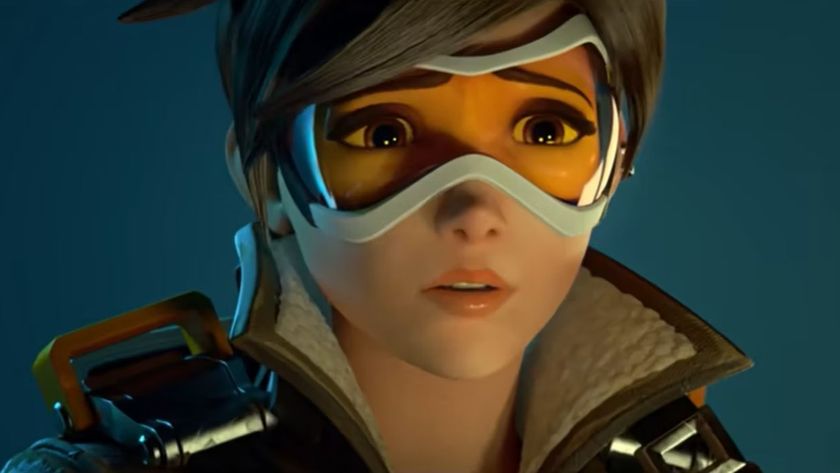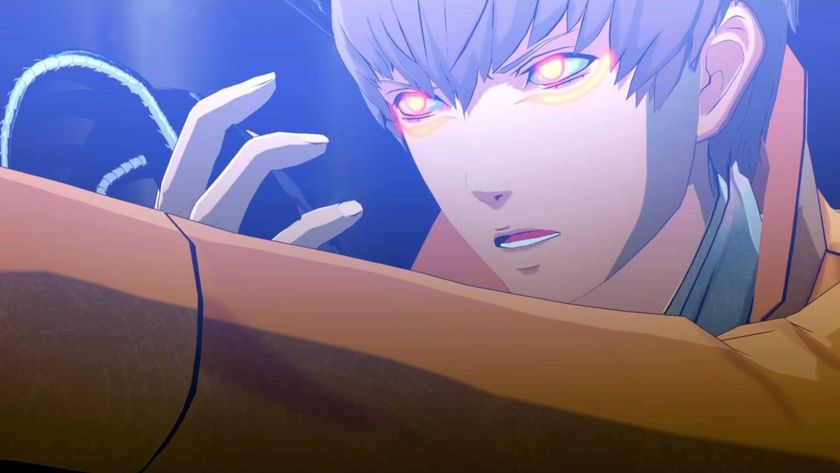Game of the Year 2012
And the winner is...
XCOM: Enemy Unknown
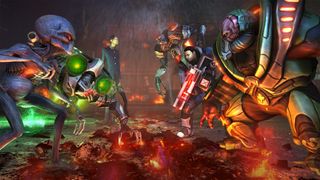
It seemed like XCOM was on the standard path for current gen by transitioning to an FPS, but a funny thing happened on the way to market. The developers behind the Civilization series created their own XCOM update, one that was remarkably respectful of what made the strategy series so memorable in the past, while making it feel current even on console.
The turn-based game put you in charge of the remainder of humanity struggling to push back an alien invasion. Every situation is dire and filled with tough choices, whether it's placing your sniper at the best vantage point or choosing to spend your last $100 on one of three necessary engineering projects. XCOM: Enemy Unknown surprised many by being one of the deepest games of the year and impossible to put down once you got in the zone.
And the winner is... The Walking Dead
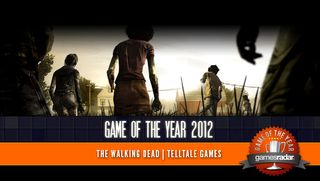
Yes, a licensed zombie game by the developer of those Sam & Max games is the best game of 2012. No, we didn't see it coming, either. We didn't expect to be immediately drawn into the crumbling world. We didn't expect to to think that the choice-driven gameplay would be incredible alluring. We didn't expect to find Lee Everett, convicted killer, to be interesting, complex and relatable. And we didn't expect to care for Clementine more than we had ever cared for a video game character.
Telltale's The Walking Dead is a triumphant leap forward for storytelling. Not just video game storytelling, mind you--all storytelling. The Walking Dead is a game that should inspire the industry, proving just how well the medium can be used to craft a compelling narrative even when it leaves big action behind. Though games like Journey, Dishonored, XCOM, and Halo impressed us in 2012, none were as powerful as Lee and Clementines relatable tale of survival.
Want to see more about why we picked The Walking Dead? Check out the video below.
RPG of the year
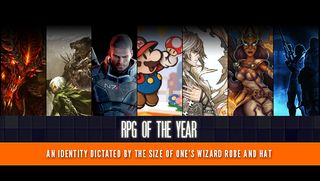
For a genre that isnt as high profile as it once was, role-playing games had a particularly strong year in 2012. Heres an easy way to measure how good it was: Great adventures like Pokemon Black/White 2, Xenoblade Chronicles, and Final Fantasy XIII-2 didnt make the cut for this feature. (Oh, and Persona lovers--sorry. Remakes, no matter how good, aren't up for the award.)
There were engrossing loot quests Diablo III and Torchlight 2. Guild Wars 2 reignited the impressive MMO series for audiences new and old. Paper Mario: Sticker Star and The Last Story proved that JRPGs can evolve in interesting ways. Mass Effect 3 was the epic conclusion to one of the biggest trilogies this generation. And XCOM: Enemy Unknown took one of the most hardcore franchises in gaming history and made it mainstream while staying true to its roots. Finding a winner out of these seven wasnt easy, as youll see when we take a closer look at our entrants...
Sign up to the 12DOVE Newsletter
Weekly digests, tales from the communities you love, and more
Diablo III
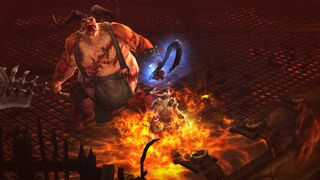
We have romantic memories of teenage years spent murdering the demon lord of hatred. Wed warp through his temple, clicking until he was blown to green and gold and yellow pieces that wed gather with haste ad infinitum. Diablo III wasnt a retelling of those memories, and some people hated it for that. But there was brilliance found in Blizzards sequel, and it wasnt in the ways it was similar to Diablo II, but the ways it was different.
Physics made the primal act of clicking feel incredibly powerful, letting us truly inhabit the pixels of our digital avatars. Brilliantly rendered environments carved the world of Sanctuary into existence, and stellar lighting coated it in reality that made it feel like an actual, tangible place. The new skill system was revolutionary, and made for an incredible amount of customization without overcomplicated skills and menus. Diablo III might not have been the sequel our teenage selves would have asked for, but that doesnt detract from how brilliantly made it is, and how much fun we had playing it.
Guild Wars 2
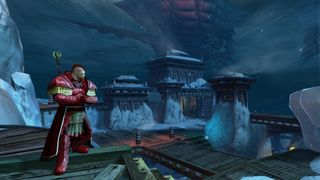
Sometimes the best way to innovate is to ignore the past and forge forward, unencumbered by the shackles of expectations. Thats the direction ArenaNet took with Guild Wars 2, a game that eschewed nearly every genre norm in order to move the MMO forward. Everything from the pay structure to the way classes interact has been completely revamped, making for one of the most accessible MMORPGs ever released.
But thats not even what earned it a spot on the list of the best RPGs of 2012. Its Guild Wars 2s take on questing that really makes it stand out among its contemporaries. The days of clicking on exclamation points is over, replaced with a free-form, exploration-based questing model that lets players approach leveling the way they want. Better yet, the games ability to downscale anyone at any time means even the idea of being too high a level to play with friends is antiquated.
XCOM: Enemy Unknown

A few months ago, XCOM felt like a series lost to time. Its style of hardcore, demanding gameplay was fine for PC players of the mid-to-late 90s, but that couldnt actually please current gamers, particularly those that reside on consoles. XCOM is probably better off getting rebooted as an FPS, right? Instead, 2K Games and Firaxis took that weathered franchise, updated it for consoles without leaving behind its most addictive qualities, and gave the world XCOM: Enemy Unknown.
XCOM: Enemy Unknowns brutal battle between humans and alien invaders is tough but fair even on Normal settings. Every victory is earned through careful planning, skill, and reflexive actions. Each turn on the battlefield was a new intense scenario because one wrong move would spell disaster for your entire squad. To top it off, the planning and resource management outside of fighting was almost as engrossing, making XCOM the perfect game to steal away an entire weekend.
Mass Effect 3

Mass Effect 3 can be a supremely depressing game, even if it is also a tour de force of epic storytelling and frenetic combat. Five years after BioWare launched its epic sci-fi RPG franchise, Commander Shepard has nothing left to do but muster the known universe's armies in a last-ditch bid to halt the Reaper's cyclical destruction of all sentient life. Friends will die, whole species will die, all because of the decisions that you must make for the greater good.
A powerful and complex storyline, of course, has come to be de rigueur from any BioWare game. Combat, not so much. With Mass Effect 3, though, the developer at last found its footing in the FPS genre, melding RPG-caliber variety with finely tuned shooting to deliver an intricate and intense experience. Good enough, in fact, to easily support what turned out to be a surprisingly successful online mulitplayer component. So much for BioWare being a one-note studio.
Paper Mario: Sticker Star

Many RPGs are infamous for pushing away players with too many rules and exposition at the outset, sometimes taking hours to truly begin. The Paper Mario games have always been aimed at streamlining that experience and Paper Mario: Sticker Star is the most simplified entry to date. Dropping much of the RPG artifice made its best qualities--combat, humor, art, soundtrack--shine brighter than ever, but it keeps an emphasis on gameplay and story that are a big part of why we love the genre.
Equipment, attacks, spells, magic points, and more RPG traditions are replaced in Sticker Star by the countless stickers that Mario uses to battle enemies with his action-oriented style of turn-based combat. The puzzles in the games also took on the same clever tone of the series, with solutions like using a goat sticker to eat all the garbage in an area. If the results were always such memorable games as Sticker Star, RPGs would break the rules more often.
The Last Story
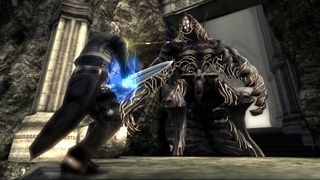
The Final Fantasy series is currently going through a strange transition in a gaming landscape that isnt as hospitable to Japanese role-playing games as it once was. And while it searches for an identity, the former Executive Producer of Final Fantasy, Hironobu Sakaguchi, quietly pushed forward JPRGs with his understated, but ultimately very important game, The Last Story. Likely one of the last quality game released for the Wii, it was a stirring sendoff for the system.
The game revolves around Zael, head of a group of mercenaries trapped in a war between countries where no ones intentions are quite clear. The world and character designs are gorgeous, as is the soundtrack by Nobuo Uematsu. The tale is told without the bloat the genre sometimes suffer from, and the combat in particular has an interesting immediacy that combines real-time attacks with unique abilities that let players dictate the flow of the action in creative ways. The Last Storys gripping (if linear) plot definitely draws on the history of JRPGs, but it defies expectations often, showing that the genres evolution is far from over.
Torchlight II
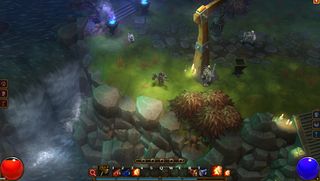
Dungeon crawlers, at their core, are about heading deeper and deeper into the depths of the unknown, slaying hordes of demonic monstrosities, and snagging all the coins and shiny toys that spew from their corpses. Torchlight II nails that formula with its slick presentation, logical loot progression, and limitless end-game content that'll keep you coming back for more.
While its four classes may fall under typical archetypes, each is imbued with a an atypical twist; the two-handed heavy-hitting Engineer, for example, can summon allied robots for support, while the pistol-wielding Outlander relies heavily on firearms instead of bows for ranged damage. You'll frequently find equipment upgrades, face down tons of unique bosses, and, upon completing the campaign, gain access to the "Mapworks." This zone presents dozens of randomized maps for you to explore and find more gear--and in the event you get bored with it, you can always check out the bevy of community mods.

Sam Loveridge is the Brand Director and former Global Editor-in-Chief of GamesRadar. She joined the team in August 2017. Sam came to GamesRadar after working at TrustedReviews, Digital Spy, and Fandom, following the completion of an MA in Journalism. In her time, she's also had appearances on The Guardian, BBC, and more. Her experience has seen her cover console and PC games, along with gaming hardware, for a decade, and for GamesRadar, she's in charge of the site's overall direction, managing the team, and making sure it's the best it can be. Her gaming passions lie with weird simulation games, big open-world RPGs, and beautifully crafted indies. She plays across all platforms, and specializes in titles like Pokemon, Assassin's Creed, The Sims, and more. Basically, she loves all games that aren't sports or fighting titles! In her spare time, Sam likes to live like Stardew Valley by cooking and baking, growing vegetables, and enjoying life in the countryside.

